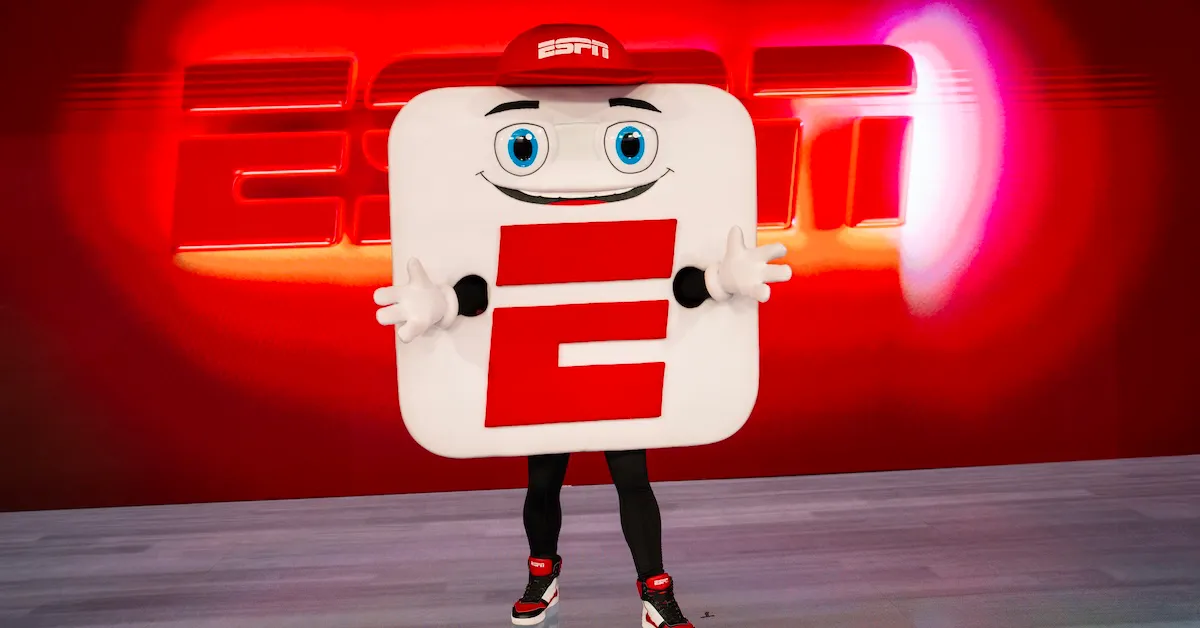
Key Points:
- A Sling TV executive has spoken publicly for the first time after ESPN sued the company for breach of contract over its Day Pass feature.
- The executive, Seth Van Sickel, says the Day Pass perk is the “deal ESPN and Disney don’t want you to know about.”
- The Day Pass offers short-term access to ESPN and other channels in Sling’s base package Sling Orange, starting at $5 per pass.
- Disney says the Day Pass feature violates its distribution agreement with Sling TV and parent company Echostar.
A senior executive with Echostar’s streaming service Sling TV has taken a shot at its programming partner ESPN after the network filed a breach of contract lawsuit against the platform last week.
In a press release issued on Tuesday, Sling TV’s Senior Vice President of Product and Operations Seth Van Sickle said the company’s new “Day Pass” feature that offers access to ESPN and a few other channels for as little as $5 is the “deal ESPN and Disney don’t want you to know about.”
“They’re charging $30 a month for games people used to get without paying more,” Van Sickel alleged, referring to the new streaming plan called ESPN Unlimited, which includes ESPN’s cable multiplex and live sports.
Van Sickel continued: “Sling isn’t playing that game — we’re giving subscribers what they actually want: Access to TV, for the entire day, five bucks and zero strings.”
Sling introduced the Day Pass feature last month, which allows customers to access its Sling Orange programming tier for a term shorter than the typical 30-day window. The plan includes ESPN, ESPN 2, ESPN 3 and a handful of other channels like CNN, TNT, Disney Channel and Comedy Central.
In an interview with a trade publication, Van Sickel claimed Sling TV and parent Echostar notified programming partners about the Day Pass feature prior to its launch, something Disney disputes in its lawsuit.
Disney says the Day Pass feature was launched without Sling TV or Echostar providing a full picture of how the company intended to market the plan. Disney also claims it didn’t know its sports networks would be included in the Day Pass feature, and that the selling of access to ESPN through a Day Pass violates its distribution contract.
A spokesperson for ESPN said the lawsuit was intended to force Echostar and Sling TV to “comply with our deal when it distributes our programming.” The complaint names Dish Network as a defendant; Dish Network is the former parent company of Sling TV, and is now itself a subsidiary of Echostar. Dish Network and Sling TV share certain operational resources and teams.
Sling TV didn’t specifically address Disney’s concerns in the press release issued on Tuesday. The company said its Day Pass feature has seen an uptick in interest from streamers since it was introduced last month, but didn’t provide any concrete data that proved how many people have purchased a Day Pass or what channels they are watching.
The press release also touted a number of advancements Dish Network and Sling TV have pioneered over time, including the introduction of ad-skipping technology that invited similar legal challenges.
“We were there first (sic) to offer live-streaming TV with Sling, we led the charge to bring local channels to satellite TV, and we have always negotiated with programmers to keep consumer costs as low as possible,” Van Sickel said. “Our Day, Weekend and Week Pass subscriptions are just another way we’re fighting to bring customers the programming they want with the flexibility they deserve.”
The situation involving Sling TV and ESPN marks a turning point in what has otherwise appeared to be a beneficial and respectable relationship between the two companies. When Sling TV launched more than a decade ago, it was the first streaming platform to offer cable-free access to ESPN, with the service’s only subscription tier priced at $20 per month.
Over time, programmers like ESPN’s parent company Disney have demanded higher distribution fees for the continued carriage of their channels. Initially, the justification was due to an increase in financial investment in premium sports programming; in recent years, the fee increases were intended to offset ongoing churn in the cable and satellite industry, which has chipped away at per-subscriber fees.
Echostar and Sling TV have responded to those demands in two ways: First, by pulling Disney-owned channels from their platforms and complaining to subscribers about the fee increases, and then by agreeing to the fee hikes after a short programming-related blackout (which eventually results in a price increase). Currently, Sling TV charges at least $46 per month for access to ESPN through Sling Orange; the price is higher in six markets where Sling offers a local Disney-owned ABC station.
It isn’t clear how Echostar and Sling TV are compensating Disney for allowing access to ESPN’s programming through a Day Pass. Typically, per-subscriber fees are calculated based on a window of access that lasts 30 days.